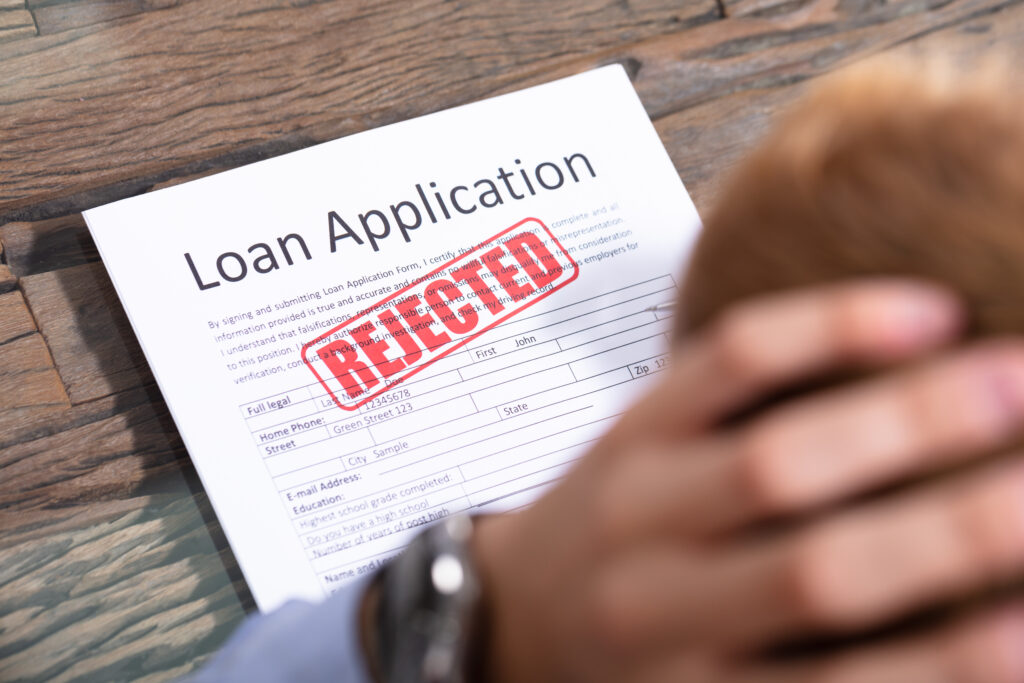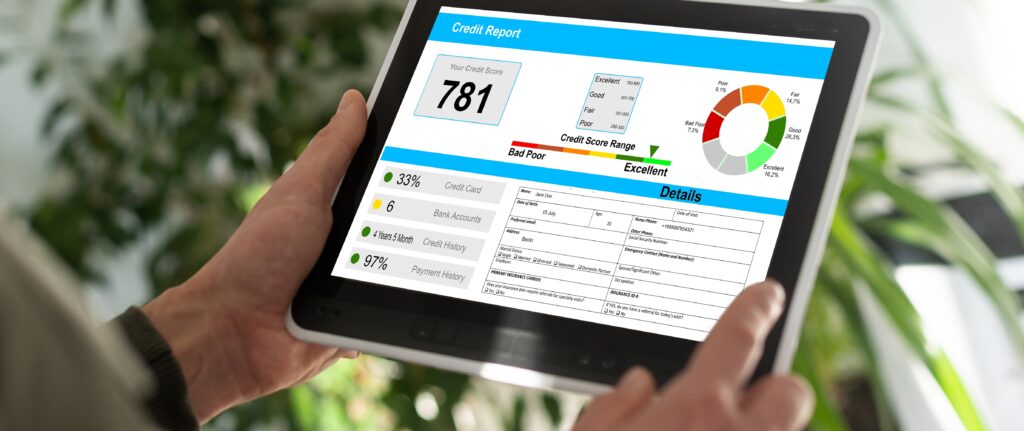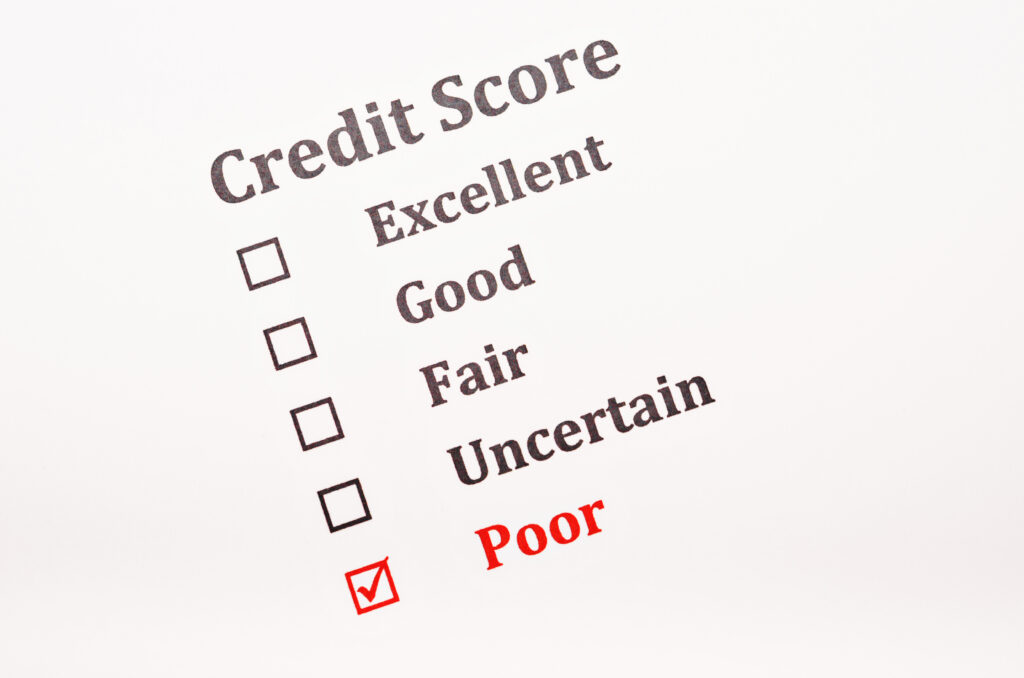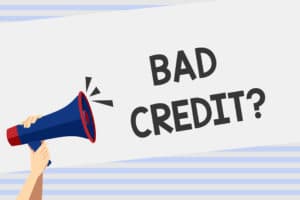
Getting a loan denial can feel like a significant setback, mainly if you’re relying on that funding for critical personal or financial needs. It’s natural to feel frustrated and wonder why you can’t get approved for a loan, but it’s important to remember that a rejection isn’t the end of the road. Loan applications are denied for many reasons, and understanding why is the first step toward improving your chances of approval.
In this article, we’ll walk you through the common reasons why loans get denied and provide actionable tips on improving your chances for approval. Whether your loan is rejected due to bad credit, insufficient income, or other factors, knowing what to expect and how to address these issues can put you in a better position the next time you apply. With the right strategy, you can work toward securing the loan you need while improving your overall financial health.
Why is it So Difficult to Get a Loan?
You may wonder, “Why can’t I get a loan?” The loan approval process involves assessing several vital factors. Lenders primarily focus on your credit history and score to determine your repayment likelihood. Missed payments or high debt can make you appear riskier. Income stability is also crucial, as lenders need assurance you can cover payments. If your income is inconsistent or below their minimum requirement, it may result in denial. Your debt-to-income ratio is important—too much debt can signal financial strain. Since lenders have different criteria, understanding these factors can help you improve your chances of approval.
5 Reasons for Loan Denials

When a loan is denied, it’s often due to one or more common factors. Understanding these reasons can help you identify areas for improvement and increase your chances of approval in the future. Below are five of the most common reasons why loans are rejected.
Bad Credit History
Your credit history is one of the most significant factors lenders look at when evaluating a personal loan application. You may be seen as a risky borrower if your credit score is low due to past financial mistakes—such as missed payments, defaults, or high credit card balances. Lenders use this information to predict whether you will make timely payments in the future. A bad credit history can signal that you’re more likely to miss payments or default on a new loan, so many applications are denied based on this alone.
Income
Lenders need to feel confident that you can repay the loan, which means your income plays a critical role in the approval process. If your income is too low or inconsistent, it may raise concerns about your ability to meet the monthly payments. Lenders typically have minimum income requirements, which could result in a denial if you don’t meet these. For Wise Loan, the minimum monthly income is $1,500. However, in South Carolina and for those self-employed, this requirement is $3,000. Even if your credit score is strong, lenders want the assurance that you have enough regular income to cover the loan payments and your existing financial obligations comfortably.
High Debt-to-Income (DTI) Ratio

Your debt-to-income (DTI) ratio is a key factor that lenders examine when determining your loan eligibility. This ratio measures how much of your monthly income is dedicated to paying off existing debts. A high DTI ratio indicates that you already use a large portion of your income to manage debt, making lenders hesitant to extend additional credit. From their perspective, a high DTI ratio signals financial strain and increases the risk that you might struggle to repay a new loan. Maintaining a low DTI ratio is essential for improving your chances of loan approval.
No Checking Account
Not having a checking account can be a red flag for lenders. A checking account is an essential financial tool demonstrating an established banking relationship and a way to manage your income and expenses. Without one, lenders may question your financial stability and organization, making them more likely to deny your loan application. A checking account is often seen as a minimum requirement to show that you have the financial infrastructure to handle income deposits and loan repayments.
Residence Stability
Lenders value stability, and your residence history is part of assessing this. Frequent changes in residence can make you appear less stable, which could signal to lenders that you’re a higher risk. Moving often can raise concerns about your ability to maintain consistent financial obligations, such as loan payments, whether due to job changes or personal reasons. Lenders prefer borrowers with a stable address history, suggesting long-term reliability and commitment.
How to Improve Your Loan Approval Chances

If you can’t get a loan, it’s essential to know that there are steps you can take to improve your chances of approval in the future. By addressing the reasons for denial and making fundamental changes, you can enhance your financial profile and increase the likelihood of securing a loan the next time you apply.
Review Your Decline Notice
One of the first steps after a loan denial is to review the lender’s decline notice carefully. This document will outline the specific reasons why your application was not approved, giving you a clear idea of what needs to be addressed. Whether it’s a low credit score, insufficient income, or overlooked basic requirements, understanding the exact cause will help you focus on the areas that need improvement. Use this information as a roadmap for what to work on before applying again.
Check Your Credit Report
Regularly checking your credit report is crucial for staying on top of your financial health. Errors on your credit report, such as incorrect account balances or payment histories, can negatively affect your credit score and lead to a loan denial. By reviewing your credit report, you can identify and dispute any inaccuracies, which may improve your score. In addition, checking your report helps you monitor your overall credit standing so you can take proactive steps to improve it before applying for a loan again.
Improve Your Credit

Improving your credit score takes time, but it’s one of the most effective ways to increase your chances of loan approval. Start by paying all your bills on time—late or missed payments can significantly damage your credit score. Reducing your credit card balances is another key strategy, as high balances relative to your credit limit can hurt your score. If you’ve identified any errors on your credit report, dispute them with the credit bureaus. Consistently following these steps can gradually build or repair your credit, putting you in a stronger position the next time you apply for a loan.
Pay Down Debt
Lowering your debt is a powerful way to improve your financial standing and reduce your debt-to-income ratio. Start by focusing on high-interest debt, as this type of debt can quickly spiral out of control. Setting up a structured payment plan can help you stay organized and progress consistently. By paying down your existing debt, you improve your debt-to-income ratio and demonstrate financial responsibility to lenders, which can increase your chances of getting approved for a loan in the future.
When Should You Apply for a Loan Again?
After a loan denial, it’s important to address the issues that led to the rejection before rushing into reapplying. The timeline for reapplying will depend on the specific reason for the rejection. For instance, if your credit score is too low, it could take several months of consistent efforts—such as paying bills on time and reducing debt—before you see a noticeable improvement. Similarly, if the reason was a high debt-to-income ratio, you should focus on paying down your existing debt before considering reapplying.
In general, it’s wise to wait at least three to six months before reapplying for a loan, depending on how quickly you can improve your financial situation. If the denial was due to unstable income, ensure you’ve established a steady source of income and can show at least a few months of consistent paychecks before submitting another application. Rushing to reapply without significant changes to your financial profile can result in another rejection, further impacting your credit score.
Taking the time to make meaningful improvements will increase your chances of approval and help you secure better loan terms when you qualify.
How Can You Get a Loan with Bad Credit?

Even with bad credit, getting a loan is still possible. While it may require more effort and careful consideration, options are available to borrowers with a poor credit history. Below are some strategies to help improve your chances of securing a loan with bad credit.
Apply with a Co-Signer
One way to improve your chances of loan approval with bad credit is by applying with a co-signer. A co-signer with a strong credit history can give lenders added confidence that the loan will be repaid, as they share the financial responsibility. This option benefits borrowers with low credit scores, reducing the lender’s risk. However, choose a co-signer who understands the responsibility and potential impact on their credit if the loan isn’t repaid as agreed.
Choose a Bad Credit Loan Lender
Some lenders, such as Wise Loan, provide loans to individuals with bad credit. While these loans can be a lifeline in emergencies, it’s important to fully understand the terms before committing. Look for transparent lenders about their rates and fees, and avoid predatory lenders that may offer short-term, high-interest loans designed to trap borrowers in cycles of debt.
When searching for bad credit loans, focus on reputable lenders that offer clear terms and reasonable repayment options. Comparing multiple lenders will help you find the best possible rates and ensure you work with a trustworthy institution.
Apply for a Loan with Wise Loan

If you’re struggling to get approved for a loan due to bad credit, Wise Loan offers a solution designed to help borrowers with less-than-perfect credit. At Wise Loan, our application process is quick and straightforward, with flexible options for individuals who may not qualify with traditional lenders. One of the key benefits of applying with Wise Loan is transparency—you’ll know exactly what to expect in terms of rates, fees, and repayment terms without any surprises. We also offer quick funding options. Get the funds you need when you need them the most.
Ready to get started? Apply now and see how Wise Loan can help.











